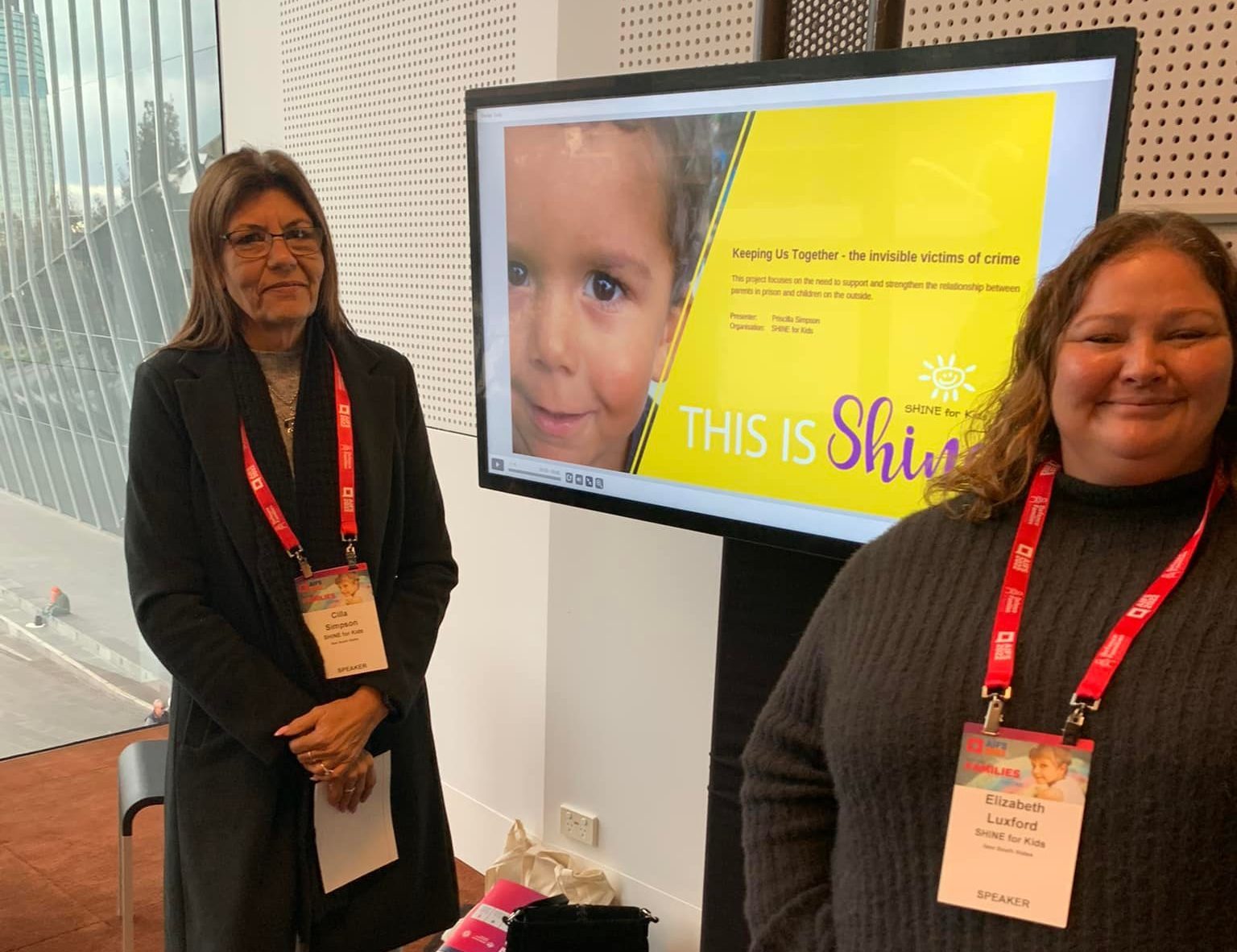Two members of our Executive team had the pleasure of attending this year’s AIFS Conference in Melbourne to share SHINE for Kids’ work and research.
The AIFS Conference attracts internationally renowned experts from a range of disciplines related to family wellbeing.
This year, leaders from across different sectors came together to explore how policies and service systems can better support families in a post-pandemic world.
Our Queensland State Manager Priscilla Simpson and National RISE Education Manager Elizabeth Luxford presented ePosters during the three-day conference and took part in conversations about how all kinds of families can thrive and the challenges families face.
Priscilla Simpson spoke to a packed room about her work with mothers in custody, supporting their connection with their children through in-custody playgroups and programs including
Keeping Us Together to improve outcomes for children and reduce recidivism rates.
She also discussed the external evaluation of the program by
The University of Newcastle which showed the huge benefits of the program.
Elizabeth Luxford presented on our RISE Education in-school mentoring program for primary-age children with a parent in custody.
The successful program aims to support children with their education, increase school attendance and improve the well-being of children who are often experiencing feelings of isolation and disengagement.
Elizabeth also discussed the data gaps around children with a parent in custody, the lack of information sharing between schools, services and government and the issues for students that this causes.
“I also wanted to communicate the prevalence of parental incarceration and how in today’s society it is still considered taboo to discuss the impacts of incarceration on families.
“During the research presentations I attended, I asked if parental incarceration was taken into account and throughout the tree-days of presentations, I did not hear of one study that had, including long-term studies,” said Elizabeth Luxford about what she wanted to achieve during the conference.
“The data gap around children of prisoners was very evident. Of the 48 sessions and over 192 research papers presented, not one was targeted toward families with a parent in custody.”
Elizabeth Luxford said she found it interesting that about a third of the attendees she spoke with have had lived experience of a family member being incarcerated which is surprising given the lack of research.
The conference was a wonderful opportunity for our team to share our work and exchange ideas with such a knowledgeable and passionate group of people. It was a privilege to be involved.
“I enjoyed meeting researchers, particularly academics who were studying the impacts of parenting programs and the influences of gender,” said Elizabeth Luxford.




